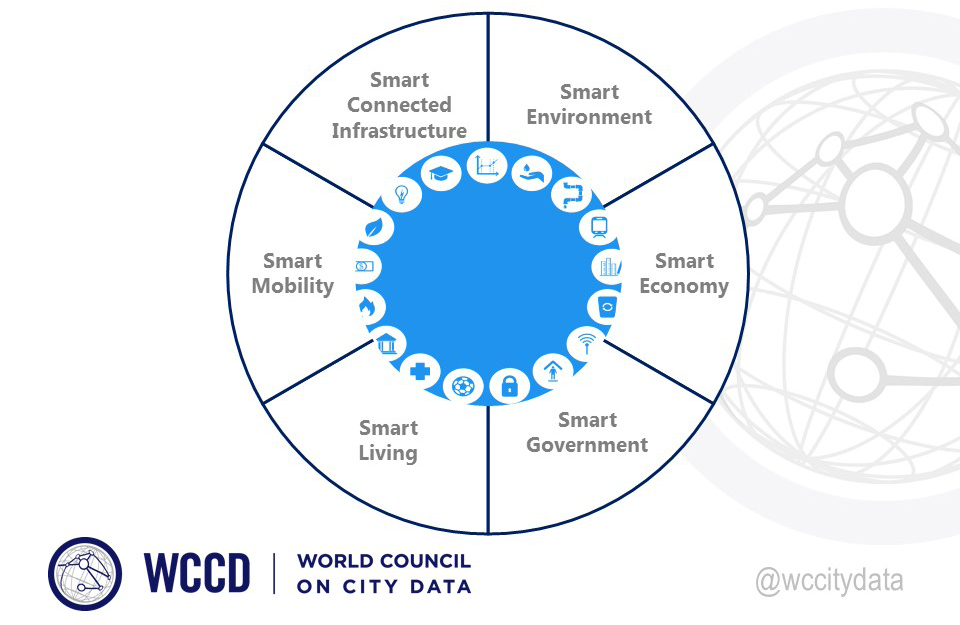
For a city to become smart it must adopt a culture of data
01 November 2016
by Jonathan Andrews
By Dr Patricia McCarney, President and CEO, World Council on City Data, and Director, Global Cities Institute at the University of Toronto
The concept of smart cities has been evolving for over a decade and is helping city leaders to think through how fundamental changes in information and technology affect how they perform across city service delivery and ensuring citizens the highest possible quality of life.
As with any new rising agenda and the proliferation of any new term, there exists an ongoing debate as to exactly what smartness entails for cities, and the inevitable question arises–what is it leaving out? As a result, a larger dialogue is now taking place that is shifting the focus away from a singular lens on information and communications technology (ICT) and expanding that focus to include the more social and human aspects of cities, and highlighting city sustainability as a key and fundamental component of smartness.
If we can agree that this balanced approach is indeed correct, what is required to build smarter, more sustainable and more inclusive cities? High-quality, standardised city-level data, generated by cities, is at the core of efforts to build a smart and sustainable city system. ICT and high-quality data allow city and system managers to gain clear insights on how to optimise performance and create efficiencies of incredible complex systems.
These tools can help cities meet the core challenges for the coming decades, including poverty alleviation, upgrading and investment in infrastructure for basic services such as water, sanitation and electricity, transit and mobility planning, and in building inclusive prosperity. It is this handshake across agendas that make cities successful places for smart, sustainable, resilient, and inclusive communities.
Taking a step back, before a city can become more sustainable, or smarter, the global city data deficit must be urgently addressed. High-quality data is critical for more effective decision-making, and is still lacking in too many cities. According to a new report by Bridgespan Analysis and Bloomberg Philanthropies, as referenced in the June 2016 edition of Cities Today: “…72 percent of city leaders said that while they have a tool or a platform for releasing data to the public, only 18 percent have an established process for regularly releasing data to the public. On taking action, 70 of the cities surveyed are committed to using data and evidence to make decisions, but just 28 percent modify existing programmes based on the results of evaluations.”
For a city to become more sustainable–or smart–a clear and coherent mechanism for annual data collection and reporting is immediately needed, which will help to address the global city data deficit. In order to become a smart city, cities must be equipped with high-calibre data to effectively identify challenges to efficiently target solutions. This is the core of city sustainability and to build smart solutions in the world’s cities.
Founded in May 2014, the Toronto-based World Council on City Data (WCCD) is providing exactly the platform and tools that cities need to build standardised city level data and implement evidence based decision making in order to meet these challenges. Cities are now engaged in the global implementation of ISO 37120–the first international standard for sustainable cities–and WCCD is providing ISO certification to cities on the basis of their data conformity to this new ISO Standard.
Comprised of 100 indicators across 17 themes with specified definitions and methodology for reporting on the 100 indicators, WCCD’s implementation of ISO 37120 is changing the ways that cities report data annually, while building best practices and benchmarking capabilities for the future. More pressingly, with the introduction of the United Nations Sustainable Development Goals (SDGs) and Goal 11–which specifically references cities–cities need to be able to report their data to national authorities in a way that is standardised and both nationally and globally comparable.
The WCCD and ISO 37120 are helping to create a ‘culture of data’ in cities globally which engenders a ‘culture of innovation’–the essence of a smart city.
The WCCD is currently developing a new ISO standard on indicators for smart cities–ISO 37122–that will complement and build on ISO 37120. This new ISO standard is currently slated for publication in 2017. This new standard–another global first–is currently in the draft stage within TC-268, Working Group 2, where indicators and methodologies are being finalised. The key elements of a smart city, as envisioned by the TC-268 include the following themes smart connected infrastructure, smart environment, smart economy, smart government, smart living and smart mobility.

The need for data to drive smart city solutions is a central tenet of the WCCD in its support to cities and nations committed to the global smart cities agenda. As the number of cities adopting ISO 37120 continues to grow globally, cities now have standardised definitions and methodologies for a set of key performance indicators as tools through which to become more sustainable, and smarter. Cities are able to track greenhouse gas emissions, for example, and then compare their city to a group of peer cities, while reaching out to colleagues from around the world to understand how other cities are tackling a variety of issues from transit to safety and emergency services. Once ISO 37120 certified, cities are included in WCCD’s Global Cities Registry™ and data is uploaded to the WCCD’s Open City Data Portal–which allows everyone from city leaders to citizens to interested private, public and international partners to graph comparable city data in a meaningful and useful manner. The open data portal allows citizens and city leaders to pose questions like, ‘How prosperous is my city?’ and other questions such as ‘How clean is my air?’
As we know from global demographic trends, achieving the UN SDGs will be a battle largely waged in cities–where a large percentage of the global population resides. WCCD’s ISO 37120 is an essential tool that cities can leverage to report not just on SDG Goal 11, but as the WCCD has discovered in mapping the SDGs against ISO 37120, a tool that will help nations succeed in SDG reporting when so much of their population is urbanised.
While the growing global debate continues around what exactly constitutes a smart city, the WCCD believes that building a culture of data and having globally comparable, standardised city data that enables cities to learn from each other, is at the core of becoming smart and sustainable. While this might seem like a lofty goal, tools like ISO 37120 and the culture of city data that it entrenches within a city will make the goal of city sustainability and smartness much more realistic and eventually achievable.








